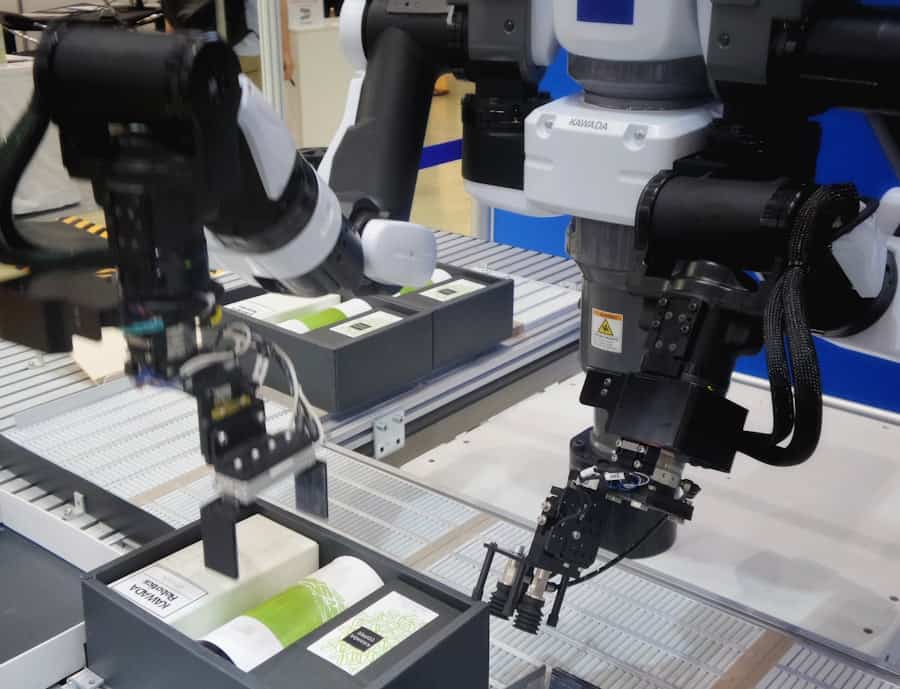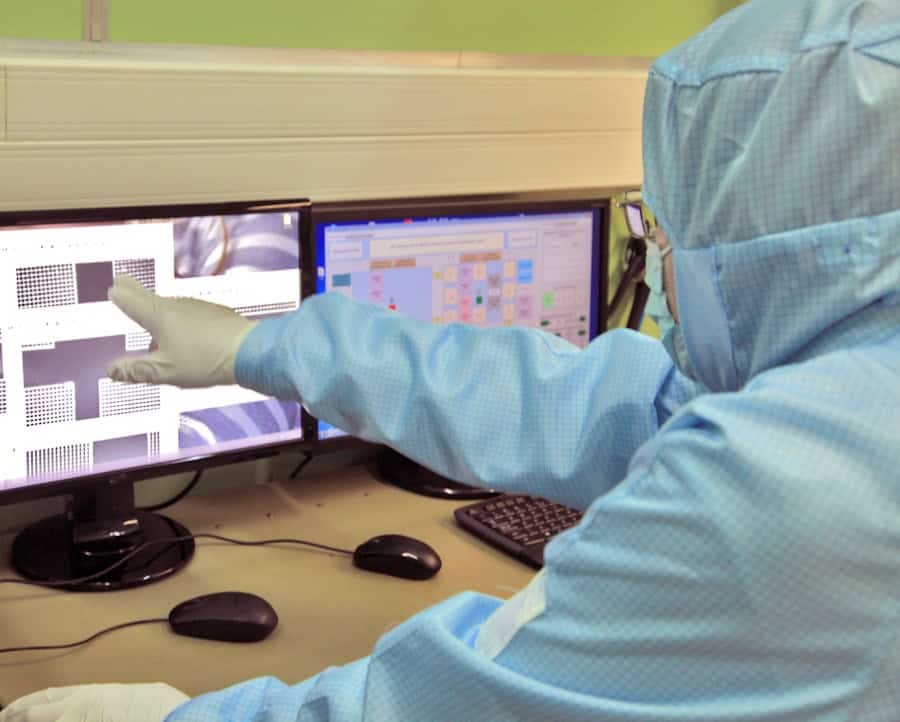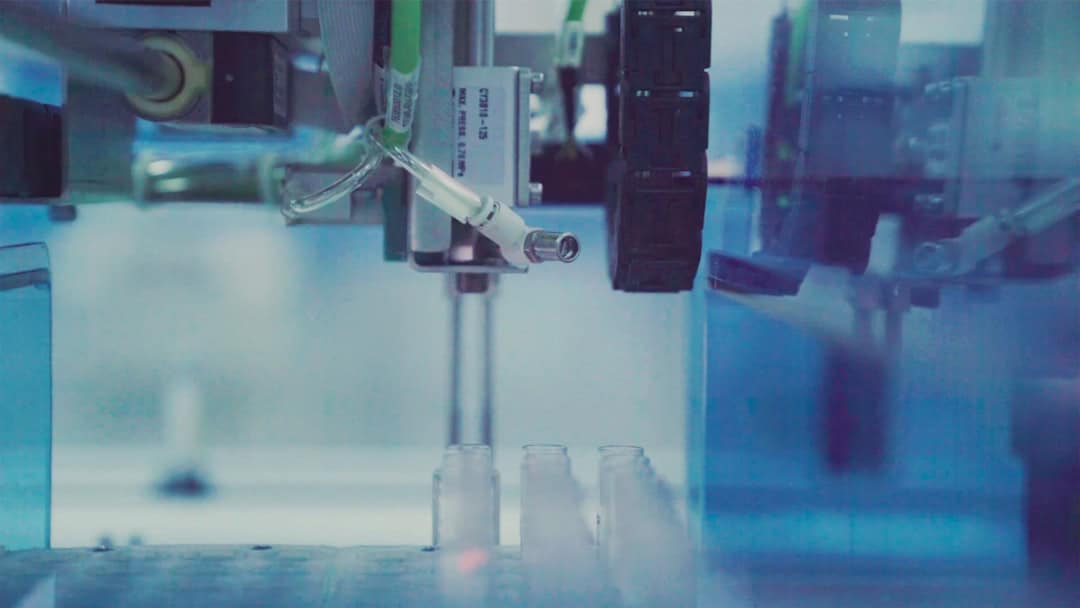The intersection of artificial intelligence (AI) and biotechnology is rapidly transforming the landscape of biomedical research. As the complexity of biological systems increases, traditional methods of research and development often fall short in terms of efficiency and accuracy. AI, with its ability to analyze vast datasets and identify patterns that may elude human researchers, is emerging as a powerful tool in the biotech sector.
This integration is not merely a trend; it represents a paradigm shift that promises to enhance our understanding of biological processes and accelerate the development of new therapies. The application of AI in biotech research encompasses a wide range of activities, from drug discovery to personalized medicine. By leveraging machine learning algorithms, researchers can sift through enormous datasets generated by genomic sequencing, clinical trials, and other sources.
This capability allows for more informed decision-making and the potential to uncover novel insights that could lead to groundbreaking treatments. As we delve deeper into the various roles AI plays in biotech, it becomes evident that its impact is profound and multifaceted, reshaping how researchers approach complex biological questions.
Key Takeaways
- AI is revolutionizing biotech research by accelerating drug discovery, enhancing precision medicine, and improving drug repurposing.
- AI plays a crucial role in drug discovery by analyzing large datasets, predicting drug-target interactions, and identifying potential drug candidates.
- AI accelerates drug development by streamlining clinical trials, optimizing drug design, and reducing time and costs associated with bringing new drugs to market.
- AI’s impact on precision medicine includes personalized treatment plans, disease risk prediction, and identifying biomarkers for early detection and intervention.
- AI contributes to target identification and validation by analyzing biological data, identifying potential drug targets, and validating their therapeutic potential.
AI’s Role in Drug Discovery
In the realm of drug discovery, AI has emerged as a game-changer, significantly enhancing the speed and accuracy of identifying potential therapeutic candidates. Traditional drug discovery processes are often lengthy and costly, typically taking over a decade and billions of dollars to bring a new drug to market. However, AI algorithms can analyze chemical compounds and biological data at an unprecedented scale, allowing researchers to predict which compounds are most likely to succeed in clinical trials.
For instance, companies like Atomwise utilize deep learning techniques to screen millions of compounds against specific biological targets, drastically reducing the time required for initial screening. Moreover, AI can facilitate the identification of novel drug candidates by predicting how different molecules will interact with biological targets. By employing techniques such as reinforcement learning and generative adversarial networks (GANs), researchers can design new compounds with desired properties.
This approach not only accelerates the discovery process but also opens up avenues for exploring previously unconsidered chemical space. The ability to generate and evaluate thousands of potential drug candidates in silico allows for a more efficient allocation of resources in the early stages of drug development.
Accelerating Drug Development with AI

Once potential drug candidates have been identified, the next phase is drug development, which involves rigorous testing for efficacy and safety. AI plays a crucial role in streamlining this process by optimizing clinical trial design and patient recruitment. Traditional clinical trials often face challenges such as lengthy recruitment times and high dropout rates.
AI can analyze patient data to identify suitable candidates more quickly, ensuring that trials are conducted with the right population. For example, companies like Tempus use AI-driven analytics to match patients with clinical trials based on their genetic profiles and medical histories. Additionally, AI can enhance the monitoring of clinical trial data in real-time, allowing for adaptive trial designs that can be modified based on interim results.
This flexibility can lead to more efficient trials that require fewer resources and time. By employing predictive analytics, researchers can also forecast potential outcomes based on early data trends, enabling them to make informed decisions about whether to continue or halt a trial. This capability not only accelerates the development timeline but also increases the likelihood of successful outcomes.
AI’s Impact on Precision Medicine
Precision medicine aims to tailor treatments to individual patients based on their genetic makeup, lifestyle, and environmental factors. AI is instrumental in advancing this field by enabling the analysis of complex datasets that inform personalized treatment strategies. Machine learning algorithms can process genomic data alongside clinical information to identify biomarkers associated with specific diseases or treatment responses.
For instance, IBM Watson has been utilized to analyze cancer patients’ genomic data to recommend personalized treatment options based on their unique profiles. Furthermore, AI can assist in predicting how patients will respond to certain therapies by analyzing historical data from similar patient populations. This predictive capability allows healthcare providers to make more informed decisions about treatment plans, potentially improving patient outcomes.
The integration of AI into precision medicine not only enhances the effectiveness of treatments but also minimizes adverse effects by ensuring that patients receive therapies most likely to benefit them.
AI’s Contribution to Target Identification and Validation
Identifying and validating biological targets is a critical step in drug development, as it determines the focus of therapeutic interventions. AI technologies are revolutionizing this process by enabling researchers to mine vast amounts of biological data for potential targets. Machine learning algorithms can analyze genomic, proteomic, and metabolomic data to identify correlations between specific genes or proteins and disease states.
For example, researchers at Stanford University have developed AI models that can predict disease-associated genes with remarkable accuracy. Once potential targets are identified, validation is essential to confirm their relevance in disease mechanisms. AI can facilitate this process by integrating data from various sources, including literature mining and experimental results, to provide a comprehensive view of target validity.
By employing natural language processing (NLP) techniques, researchers can extract relevant information from scientific publications at scale, identifying existing evidence supporting or refuting the role of a target in disease pathology. This capability not only accelerates target validation but also enhances the overall quality of drug development efforts.
Enhancing Drug Repurposing with AI

Drug repurposing involves finding new uses for existing medications, which can significantly reduce development time and costs compared to developing new drugs from scratch. AI plays a pivotal role in this area by analyzing existing drug databases alongside disease-related data to identify potential repurposing opportunities. Machine learning algorithms can uncover hidden relationships between drugs and diseases that may not be immediately apparent through traditional research methods.
For instance, researchers have successfully used AI to identify existing drugs that could be effective against COVID-19 by analyzing molecular interactions and biological pathways involved in the disease. By leveraging existing knowledge about approved drugs and their mechanisms of action, AI can rapidly generate hypotheses for clinical testing. This approach not only expedites the identification of viable treatment options but also maximizes the utility of existing pharmaceuticals, ultimately benefiting patients who may have limited treatment options.
AI’s Role in Predicting Drug Toxicity
One of the significant challenges in drug development is predicting toxicity before clinical trials begin. Adverse drug reactions can lead to costly late-stage failures or even withdrawal from the market after approval. AI offers innovative solutions for predicting drug toxicity by analyzing chemical structures and biological data to assess potential risks associated with new compounds.
Machine learning models trained on historical toxicity data can identify patterns that indicate whether a compound is likely to cause adverse effects. For example, companies like BenevolentAI are utilizing AI algorithms to predict toxicity profiles based on chemical properties and biological interactions. By integrating diverse datasets, including preclinical studies and post-market surveillance data, these models can provide insights into potential safety concerns early in the development process.
This predictive capability not only enhances patient safety but also reduces the likelihood of costly late-stage failures due to unforeseen toxicities.
Challenges and Opportunities in AI-driven Biotech Research
Despite the promising advancements brought about by AI in biotech research, several challenges remain that must be addressed for its full potential to be realized. One significant hurdle is the quality and availability of data. AI algorithms rely heavily on large datasets for training; however, many biological datasets are fragmented or lack standardization.
Ensuring that data is high-quality, comprehensive, and accessible is crucial for developing robust AI models that can deliver reliable results. Moreover, there are ethical considerations surrounding the use of AI in healthcare and biotechnology. Issues related to data privacy, algorithmic bias, and transparency must be carefully navigated to build trust among stakeholders, including patients and regulatory bodies.
As AI continues to evolve within biotech research, fostering collaboration between technologists, biologists, ethicists, and regulators will be essential in addressing these challenges. On the other hand, the opportunities presented by AI in biotech research are vast. The ability to harness machine learning for predictive analytics opens new avenues for innovation across various domains within biotechnology.
As researchers continue to explore the capabilities of AI-driven tools, we may witness breakthroughs that were previously thought impossible—transforming how we approach disease treatment and prevention on a global scale.
A related article to How AI is Enhancing Biotech Research in Drug Discovery is “Discover the Best Free Software for Translation Today.” This article discusses the importance of translation software in breaking down language barriers and facilitating communication in various industries, including biotech research. To learn more about the best free software for translation, check out the article here.
FAQs
What is AI?
AI, or artificial intelligence, refers to the simulation of human intelligence in machines that are programmed to think and act like humans. This includes tasks such as learning, problem-solving, and decision-making.
How is AI being used in biotech research for drug discovery?
AI is being used in biotech research for drug discovery to analyze large amounts of data, identify patterns, and make predictions. This can help researchers to more efficiently and effectively identify potential drug candidates and understand their potential effects.
What are some specific ways AI is enhancing biotech research in drug discovery?
AI is being used to analyze genetic data, identify potential drug targets, predict the effectiveness of drug candidates, and optimize clinical trial designs. It can also help to identify potential side effects and interactions of drugs.
What are the benefits of using AI in biotech research for drug discovery?
Using AI in biotech research for drug discovery can help to accelerate the drug development process, reduce costs, and improve the success rate of bringing new drugs to market. It can also help to identify new potential drug targets and understand the underlying mechanisms of diseases.
Are there any challenges or limitations to using AI in biotech research for drug discovery?
Some challenges of using AI in biotech research for drug discovery include the need for high-quality data, potential biases in the data, and the need for validation and regulatory approval of AI-driven findings. Additionally, there may be ethical considerations related to the use of AI in drug discovery.

